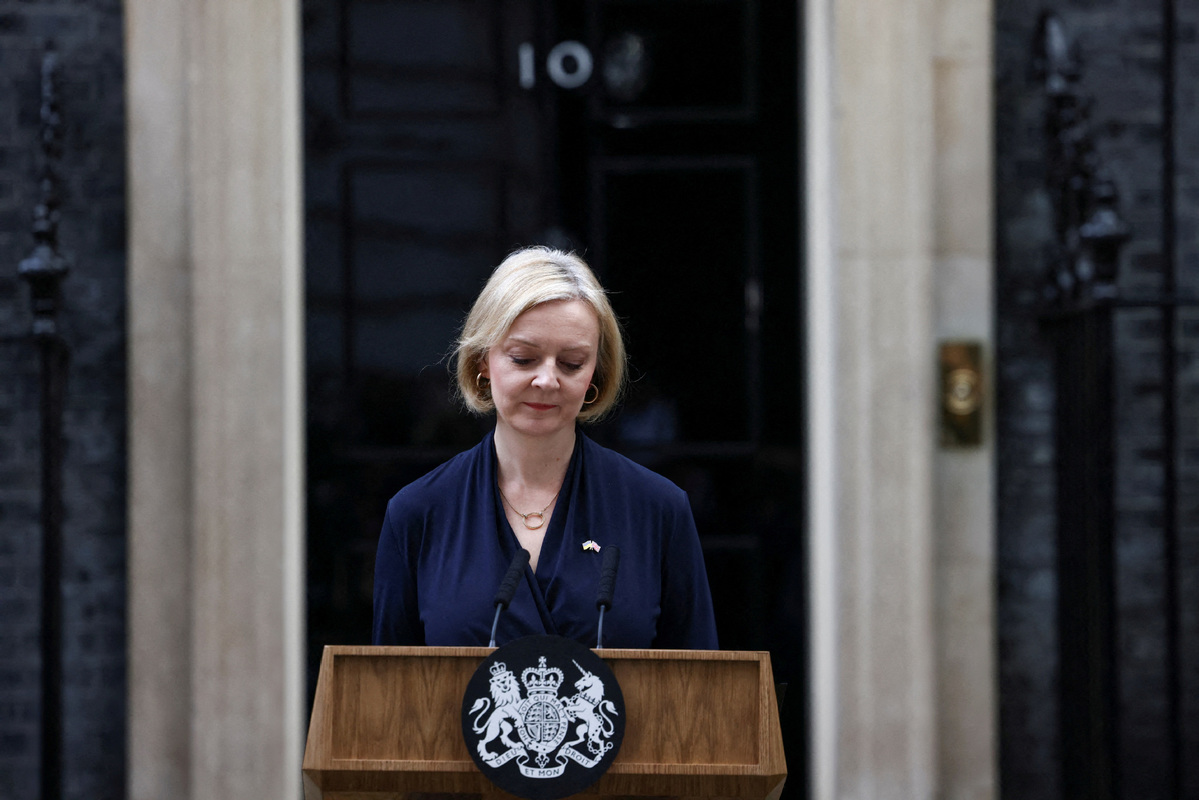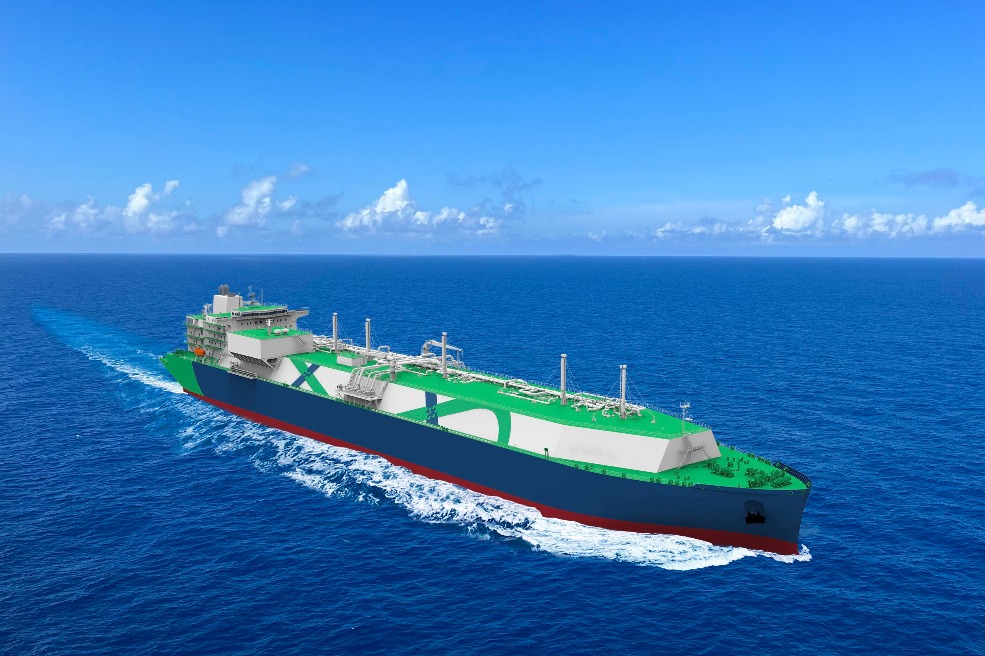Liz Truss resigns as prime minister but UK will have further troubles
CGTN | Updated: 2022-10-22 10:57

Liz Truss served as the United Kingdom's prime minister for only 45 days but her departing from Number 10 Downing Street places her country in a much weaker position on the world stage. Nonetheless, her resignation will not fix what ails the UK and Europe as a whole since the geopolitical challenges are growing much more destabilizing and the international economy looks to be headed for a downturn, more likely a recession.
The change of leadership in the UK sets a signal that more troublesome times are blowing in and stability is crumbling at the core. Accordingly, the Conservative Party cannot reverse their dismal fortunes after selecting a new leader with the likely candidates being former PM Boris Johnson, former chancellor Rishi Sunak and Defense Secretary Ben Wallace, etc.
The new elections are scheduled for October 28 as announced by Graham Brady, chair of the 1922 Committee, a king-maker for Conservative Party's leaders.
Truss was doomed from the start
Truss was appointed as prime minister on September 8 but she was not popularly supported by winning a General Election vote. She simply won with a majority vote by the 172,000 members of Conservatives, who are mainly elderly and affluent citizens. She campaigned for the leadership role pledging to cut taxes, reduce business regulations and still continue on with high public spending measures.
But her plans started to go awry right after the former Chancellor of Exchequer Kwasi Kwarteng announced on September 23, a "mini-budget" with 45 billion pounds in unfunded tax cuts. In the immediate aftermath, the financial markets tumbled, UK pensions stood on the brink of massive defaults and the British pound plunged in value to the dollar.
Truss went into damage control mode by taking a U-turn and eventually sacking Kwarteng and replacing him with Jeremy Hunt who scrapped most of the reforms of the "mini-budget." Yet, Truss's political reversals resulted in her imminent demise.
She had many rivals among her Conservative peers in Parliament and they deemed her political flip flops as a sign of weakness and they could ramp up the pressure to oust her from power.
War-hawk foreign policy was not helpful
It's a common trait for leaders of the developed nations in the West to favor an anti-China and anti-Russia foreign policy agenda when they are confronting rising unpopularity at home. They seek to divert voters' attentions away from their disastrous domestic policies by playing the blame game by villainizing Beijing and Moscow.
Accordingly, Truss played along by officially labeling China as a "competitor and threat" to the UK. Her diplomatic move took a more extreme and aggressive stance but it garnered her scant public support. Truss learned the hard way that going anti-China can no longer serve as a game-changer to win more political support from the ordinary Brits.
The Conservative Party's members of parliament (MPs) were more worried about the UK's costs of living crises, double-digit inflation rates, looming recession and threats of widespread energy black outs this coming winter.
Truss did herself no favors as well by strongly backing the United States, NATO and EU with firm support for Ukraine. Hence, the UK was pledging more public funding and weapons for Kyiv when in fact her government should have been more focused on propping up the UK economy and improving the living standards of the Brits.
Next UK PM will enter a storm
As the saying goes, "be careful what you wish for." The opposition Labour Party leader Keir Starmer is calling for General Elections.
"This is doing huge damage to our economy and the reputation of our country," he said. "We must have a chance at a fresh start. We need a general election – now," said Starmer after Truss announced her resignation. He described her tenure as "utter chaos."
Meanwhile, Boris Johnson is flying back to London after enjoying an extended family vacation in the Dominican Republic. He believes he can come to the rescue, but it appears he's engaged in fantasy thinking.
The UK is in poor shape not because of Truss, but on account of the changing geopolitical and global economics' landscape. The forecast looks bleak not only for the UK, but also for the developed nations of the West. The impending energy shortages, surging inflation rates, central banks raising benchmark rates and unstable governments will continue to place the UK under more severe strains.
Hence, the next UK prime minister will unlikely create miracles to reverse course and set the nation's sails in the right direction. The storms swirling on the horizon can no longer be contained without ushering drastic reforms but the UK's politicians don’t seem keen on bold reforms.
























